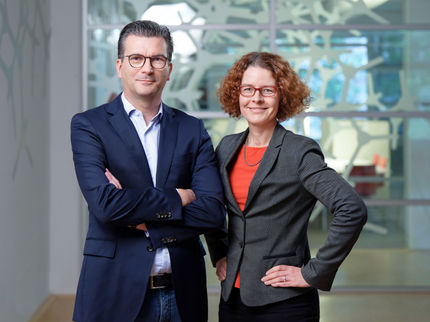Clean aluminum from used coffee capsules
Recycling process soon ready for industrial application
Advertisement
Turn on the machine, insert the coffee capsule, enjoy your coffee - as practical as coffee capsules are, they can be a potential burden on the environment: Although there is a collection system for used coffee capsules in Austria, the recycling rate is currently only around 30 percent. The main problem for the subsequent recycling process is the high content of coffee brew compared to the packaging material, which leads to economic and process-related restrictions in the melting process in aluminum smelters, where the coffee capsules are melted. A current project at the Chair of Nonferrous metallurgy in collaboration with industrial partners is developing a treatment process to produce new aluminum from used coffee capsules in order to close the material cycle in line with the University of Leoben's circular engineering approach.
A project at the Chair of Nonferrous Metallurgy at Montanuniversität Leoben, in collaboration with company partners, aims to develop a new treatment process to produce new coffee capsules from used aluminum coffee capsules. "The aluminum from such capsules is very valuable and should be preserved in the sense of a circular economy," says Ass.-Prof. Dr. Eva Gerold, researcher at the Chair of Nonferrous Metallurgy at the University of Leoben. The professor gives an example: "Nespresso capsules consist of around 0.5 to 1 gram of packaging material, with aluminum being the main component, and contain around 6 grams of coffee." The challenge is to separate these components and ensure efficient recycling.
Recycling options for aluminum alloys necessary
Alloys in particular pose a challenge. "There's a saying in metallurgy: once it's in aluminum, it stays in aluminum. This is a key point, especially in the context of recycling, as aluminum exists in numerous alloys - each with specific properties depending on the area of application, such as for car doors or coffee capsules. The former need to be stable and attractive, which is why alloying elements such as silicon, zinc or iron are used.
Coffee capsules, on the other hand, need to be dense, very thin and rollable. These requirements not only have to be taken into account when selecting and developing the alloy, but also during the subsequent recycling process," says Gerold.
However, alloys for coffee capsules, for example, differ from manufacturer to manufacturer. If the scrap is also not well sorted or mixed, it is not easy to produce a specific alloy from it again. In such cases, cast alloys are usually produced - classically for engine blocks. With increasing e-mobility, this demand is decreasing, which is why new recycling options are needed. This is where the researchers are working to develop alloys and recycling processes that tolerate different alloy element contents.
Process produces aluminum foil
In order to test and optimize the new recycling process, an industrial partner provides the researchers with differently prepared capsule materials that differ both in the proportion of organic components and in the degree of comminution.
"In a first step, the used coffee capsules are shredded and the coffee they contain is separated. The oils and varnishes on the capsules are then removed. They contain organic components that would contaminate the melt. This conversion process works thermally in the absence of oxygen - with the aid of nitrogen, for example. The resulting gases have a high calorific value and are used to heat the melting furnace in an energy-efficient manner," explains the researcher. To minimize oxidation due to the high surface volume of the capsules, they are compacted before melting. "The primary materials are first carbonized in so-called two-chamber furnaces and pushed into the melting bath to produce metallic aluminium. Salt treatment also helps to remove impurities and improve the composition of the melt," adds Gerold. In further steps, small aluminum ingots are produced, which are rolled into foils with a final thickness of 0.1 mm on the chair's own mini rolling mill - the desired end material.
Recycling process soon ready for industrial application
In the further course of the project, the aluminum foils are to be industrially processed into coffee capsules by a company partner, which would enable closed-loop recycling of the coffee capsules. "Incidentally, the recycled coffee capsules don't necessarily have to be turned into a new capsule," the researcher adds, "as they can also be used to make a drinks can or a new laptop, depending on requirements and alloy specifications."
Note: This article has been translated using a computer system without human intervention. LUMITOS offers these automatic translations to present a wider range of current news. Since this article has been translated with automatic translation, it is possible that it contains errors in vocabulary, syntax or grammar. The original article in German can be found here.































































